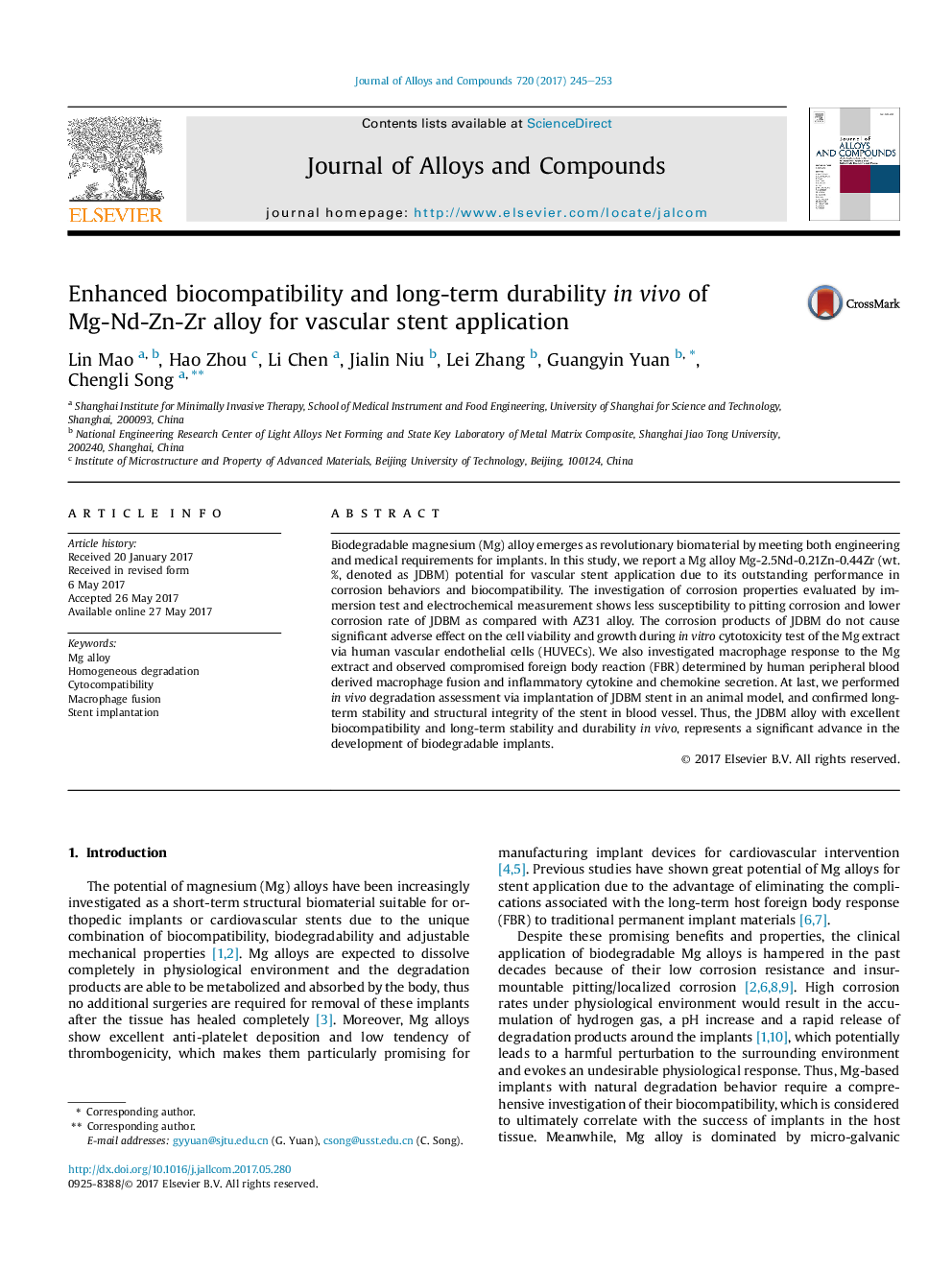| Article ID | Journal | Published Year | Pages | File Type |
|---|---|---|---|---|
| 5458448 | Journal of Alloys and Compounds | 2017 | 9 Pages |
Abstract
Biodegradable magnesium (Mg) alloy emerges as revolutionary biomaterial by meeting both engineering and medical requirements for implants. In this study, we report a Mg alloy Mg-2.5Nd-0.21Zn-0.44Zr (wt. %, denoted as JDBM) potential for vascular stent application due to its outstanding performance in corrosion behaviors and biocompatibility. The investigation of corrosion properties evaluated by immersion test and electrochemical measurement shows less susceptibility to pitting corrosion and lower corrosion rate of JDBM as compared with AZ31 alloy. The corrosion products of JDBM do not cause significant adverse effect on the cell viability and growth during in vitro cytotoxicity test of the Mg extract via human vascular endothelial cells (HUVECs). We also investigated macrophage response to the Mg extract and observed compromised foreign body reaction (FBR) determined by human peripheral blood derived macrophage fusion and inflammatory cytokine and chemokine secretion. At last, we performed in vivo degradation assessment via implantation of JDBM stent in an animal model, and confirmed long-term stability and structural integrity of the stent in blood vessel. Thus, the JDBM alloy with excellent biocompatibility and long-term stability and durability in vivo, represents a significant advance in the development of biodegradable implants.
Related Topics
Physical Sciences and Engineering
Materials Science
Metals and Alloys
Authors
Lin Mao, Hao Zhou, Li Chen, Jialin Niu, Lei Zhang, Guangyin Yuan, Chengli Song,
